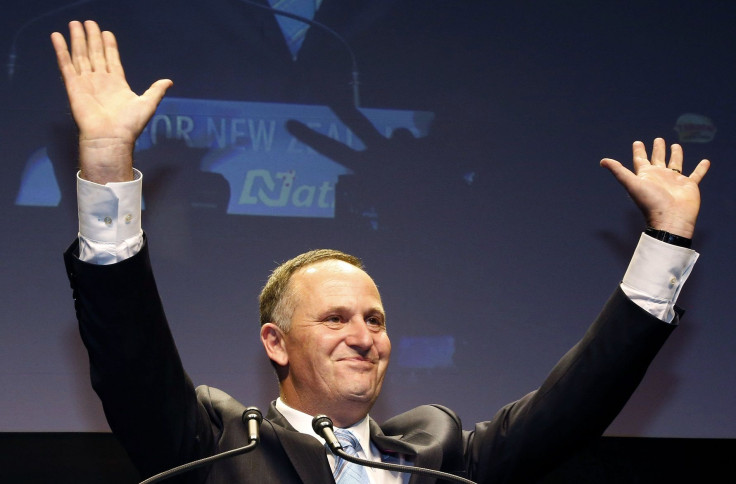New Zealand PM John Key Will 'Not Quit' His Post Over GCSB Mass Surveillance Claims

New Zealand Prime Minister John Key has declared he will not resign if proof comes out that the GCSB carried out mass surveillance on Kiwis. He has previously insisted he would resign as prime minister if the government intelligence agency has been found to spying on New Zealanders.
Mr Key said the GCSB told him the spy agency is not capable of mass surveillance and not legally allowed to do so. However, according to a series of reports by New Zealand journalist Nicky Hager, who is also working with The Intercept’s Ryan Gallagher, New Zealand has dramatically expanded its surveillance operations under the key government.
Hager’s revelations were based on the secret documents leaked by former NSA contractor Edward Snowden. The documents showed that most of the targets are not security threats to New Zealand as previously said by the government, reports TVNZ. The GCSB’s intelligence base at Waihopai has moved on to “full-take collection” and indiscriminate surveillance on Kiwis in Pacific countries.
Although the mass surveillance was denied by Mr Key, a former director of the GCSB has confirmed that the intelligence agency conducts mass surveillance. Sir Bruce Ferguson told Radio New Zealand the GCSB collects emails and communications in the Pacific but does not use the information on Kiwis.
The prime minister said New Zealanders do not have the right to know what the government is doing in digital surveillance as a “general rule.” When asked if there is mass collection of personal data on New Zealand citizens in the Pacific, Mr Key said the government collects specific information but for a good reason.
Mr Key has refused to explain the difference between “mass collection” and “mass surveillance.” Critics of the government have pointed out that many Kiwis live, work and go on vacation in the Pacific islands. The Snowden documents refer to a “full-take collection” of data by the GCSB in nearly two dozen countries.
Snowden has previously wrote an article for The Intercept that said any statement saying New Zealand does not perform mass surveillance is “categorically false.” He also called Mr Key’s claim to the public as false. Snowden has reiterated in 2014 that the GCSB is directly involved in the untargeted and bulk interception of private communications.
To report problems or leave feedback on this article, contact: r.su@ibtimes.com.au





















